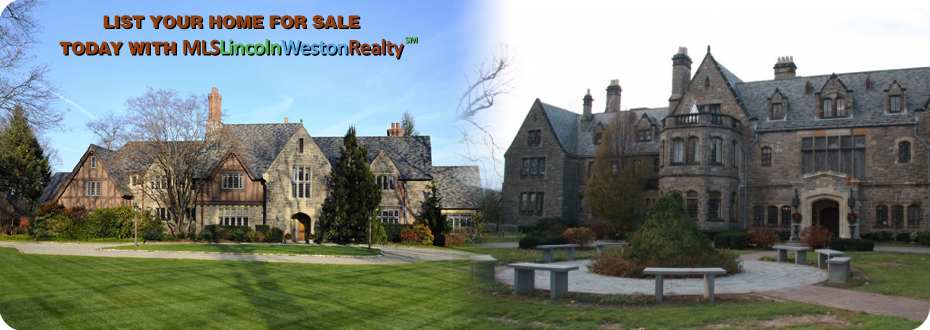March 2014 Blogs
5 Ways to Pick the Perfect Time to Sell:
Smart sellers spend a whole lot of time and energy strategizing about how to sell their homes for top dollar. They factor in buyer demand, the competition, the job market, the mortgage market and their agent’s track record. And that doesn’t even account for all the time spent understand recent home sales in the area as an indicator of how local buyers will react to this listing.
Many a smart seller will also try to time their listing just right, too. And most often this looks like waiting until they feel buyers are sufficiently ready, willing, and able to pay a good price for the property. One timing consideration that sometimes gets short shrift is this: the calendar.
There’s a season for everything, as you might have heard. And recent Trulia data revealed some powerful geographically-specific seasonal trends in search activity for homes, adding proof to what agents have long known – the calendar portends various shifts in buyer activity, which sellers need to note. If you’re gearing up to list your home for sale, you should definitely take advantage of this interactive tool we’ve created to help you understand how these shifts play out in your area, and connect with your agent to discuss whether and how you might want to factor that into your home sale action plan.
But there are also a number of calendar-based factors you should just be thoughtful about as you put your plan for selling together. Here are a handful of calendars that should be – and stay – on every home seller’s radar screen:
1. The Academic Calendar. Families with school-aged children often find it less disruptive to house hunt in the late Spring/early Summer with the aim of moving in before school starts. Of course, we all know what they say about the best laid plans, so by no means should you let this stop you from listing your home at another time of year. Just know that demand for homes with convenient proximity to strong schools can uptick during the summer school break and around other times of year when kids are not in school.
2. The Tax Calendar. I cannot count the number of relatively unmotivated, looky-loo type buyers I’ve worked with over the years who got sudden, intense motivation from a massive, looming tax bill. For instance, many new professionals will seek to close escrow on homes between the time they graduate and the end of that same year, in an effort to deduct their closing costs and mortgage interest from their newly large incomes and avoid a big tax bill the following April. Similarly, just after tax time in April, a flood of newly motivated buyers come into the market, advised by their CPAs that the mortgage interest deduction is their best bet for not having to write as big a check to the IRS next year.
Fortunately for sellers, more buyers and more motivation means more demand and – all other things being equal – can translate into a faster sale at a higher price than at other times of the year.
3. The Weather Calendar. Many sellers who live in cold-weather climates are aware that wintry weather conditions can dramatically cut down on the numbers of buyers who are out viewing properties. This is why buyer searches for homes on Trulia peak earliest, in January, in warm-weather states like Hawaii and Florida – and not until after the Spring thaws in the Midwest, the South, the northeast and most of the West.
But what’s not as obvious is that the combination of what’s happening on the weather calendar and the specific features of your home can interact to impact your home’s prospects for sale – and its ultimate sale price. Behavioral economics researchers have found that homes with swimming pools sell for more in the summertime than they do in the winter. “When it is sweltering outside, a swimming pool just looks attractive. There’s an emotional connection because it reminds us of fun times we have in the summer,” said Jaren Pope, one of the study’s authors and an assistant professor of economics at Brigham Young University.
So, if you’re selling a home with ski slope access in the summer, you might want to paint the picture of a cozy, fun-filled winter by staging the place with ski gear and other items that help prospective buyers visualize how much fun they’ll have when winter comes. And vice versa -if you’re selling a pool house in the winter, consider making sure it is steamy and heated, if it has those features. Stage it with lounges, towels, lights – anything that showcases the pool to offset cold-weather buyer’s psychological tendency to discount the appeal of a pool in the winter.
4. The Holiday Calendar. During the holidays, many buyers simply prefer to spend their downtime celebrating with family and friends vs. house hunting, especially in locales where the winters are wet or cold. Our listing search data backs this up: nationwide, December is the slowest month of the year for home searches, and November is the second-slowest.
Does this mean the holidays are a bad time to have your house on the market? Not necessarily: some homes just show beautifully when all lit up and tastefully dressed up for the holidays. And the truth is that there is a hardy contingent of buyers motivated to close by year’s end for tax purposes, every year in every market. While buyers might be fewer in number, those who will brave rain, sleet and snow and forego holiday parties to house hunt can be some of the most motivated buyers of all.
5. The Gregorian Calendar (the regular old January through December calendar, that is). A survey just released by Fidelity Investments revealed that 54% of Americans said they typically consider setting New Year’s Resolutions related to their personal finances. This year, 26 percent of respondents said they are in a better financial situation today than last year (only 19 percent said so in 2012) and 28 percent say they are less in debt (vs. 25 percent in 2012).
Home buying tends to be a popular resolution among those with money on their minds at this time of year – and also among people looking forward to career promotions, developing their love and family relationships or relocating to a new home town. Make sure your home is well-represented on sites like Trulia at the beginning of the year (i.e., now!), when these life and financial change visionaries start searching the web for their next nest.
4 Ways to Supercharge Your House Hunt — and Get Your Sundays Back:
Every buyer-to-be uses open houses differently. For some, they offer a rich looky-look experience at the very, very beginning of their house hunt. This empowers you to learn exactly what sort of place you can get for the money, at various price points and various spots around town. It also allows brand new buyers to figure out how the photos you see online translate into real world, brick and mortar (and stucco and hardwood) properties.
At the other end of the spectrum, serious buyers often use Open Houses as a convenient opportunity to meet up with their agent and cruise through a large number of interesting homes at one time every week without having to go through the rigmarole of setting appointments with every single seller.
Whether you’ve just decided that buying a home is something you want to do or you are a seasoned, serious buyer waiting for that moment when “the one” hits the market, supercharge your Open House hours. See more properties that are real contenders and minimize time-wasting with these four tactical tricks:
1. Prep yourself. Sure, you can just hop in the car, drive around and look for signs. If your market is very active, you can even find an interesting house or two that way. Or you can maximize your time, conserve your energy and make sure you see as many real contenders as possible in a couple of hours on the weekend by doing a little bit of digital research to create a power-packed Open House viewing session.
On the newly beautified Trulia app, you can take a look at any point on the map and see a birds-eye-view of the properties for sale, their list prices and which of them have an upcoming Open House. Tap on any property’s flag to see the property’s photo and a few of the most important details (price, address, bedrooms, and bathrooms), while still seeing the map view. For even more info, tap the image of the home you’re interested in and browse all of its relevant stats, including more pictures. If a home isn’t checking enough of your “must-have” boxes, cross it off your Open House list for the weekend and pat yourself on the back for saving some serious time. If it is, add it to your calendar right from the app.
Tired of driving around different neighborhoods trying to determine if they’re a good fit for your family? Where’s the nearest grocery store? What’s that shady-looking character doing on the street corner? Now you can do it digitally. View the map of your target areas through a number of helpful lenses, like where schools and restaurants are located, or where crime rates are lowest. With these tools at your disposal, you’ll spend less time pounding the pavement so you can have more of your weekend back.
2. Align with your agent to create an Open House viewing list. Via the app, share the properties that you think you’d like to visit on the weekend with your agent. Ask them to do the same, sharing any properties they think you should view at Open House time with you. Then, check in via phone or email to firm up the list so they can plan out an efficient map, do some deep dive research into any property-specific questions you have in advance, and to make sure you don’t have any surprises in the form of places you really wanted to see that don’t make your agent’s list for whatever reason. Do the prep work and get on the same page with your agent in advance. It’ll make your two hours of Open House Hunting as productive as a less well-prepared buyer’s two weeks worth.
One more thing. Making sure your agent knows you are really excited about a particular property at Open House time allows them to touch base with the listing agent and let them know you might have some interest. That way, if they happen to get an offer from another buyer between the time you mention the place to your agent and Open House time, your agent will probably get a call. This prevents you from getting the awful surprise that happens when a great place goes into contract before you can see it.
3. Take notes, and compare them. After every home you see, spend a moment taking down some notes – ideally in writing or on your app – that just help you remember which property features went with which address/price/listing. Once you’ve seen 5 or 10 or 25 homes, they begin to blur, and it often comes up that you’ll want to look back and reference a particular home you visited in a later conversation with your agent or your partner. Having a few notes on your initial impressions, questions, concerns, loves and dislikes about each property prevents you from being frustrated when you later want to have a conversation about it.
Ideally, after each property you see or, at the latest, at the end of your Open House tour on a given day, you’ll also take and compare your notes about the properties you saw that day. I suggest listing out the good (what you liked), the bad (what you disliked), the ugly (any serious deal-killers) and then also the great elements for each property. Think of the great as being akin to clicking the Facebook “Like” button for a property, if that Like button were amped up to “Love.” The Great are those features – or combination of features – so strong that the property is something you’d consider writing an offer on.
The goal here is three-fold:
• to give you the ability to compare properties without relying 100% on memory.
• to allow you to give substantive feedback to your agent that will help them help you prioritize new listings as they come on the market and learn what you are looking for at a nuanced level
• to allow you to compare notes at the end of each Open House Hunting session with your agent or your partner (whoever you’re buying the property with), and to be able to compare pros, cons and takeaways substantively, rather than just saying you liked it or disliked it.
4. Use Open Houses as a screening tool. Here’s the other thing that taking good Open House viewing notes on each property does: it helps you narrow down all the places that looked kind of interesting to a short list for second takes. Good notes, organized by Great, Good, Bad and Ugly can help if you were hypnotized by beautiful staging or turned off unduly by ugly, easily fixable cosmetics. If you love a place, but it still has a lot of bad or ugly line items, or you dislike a place that actually has a lot of “Great” things about it, you can ask your agent to arrange for a private, second viewing before making an offer or totally crossing it off the list.






